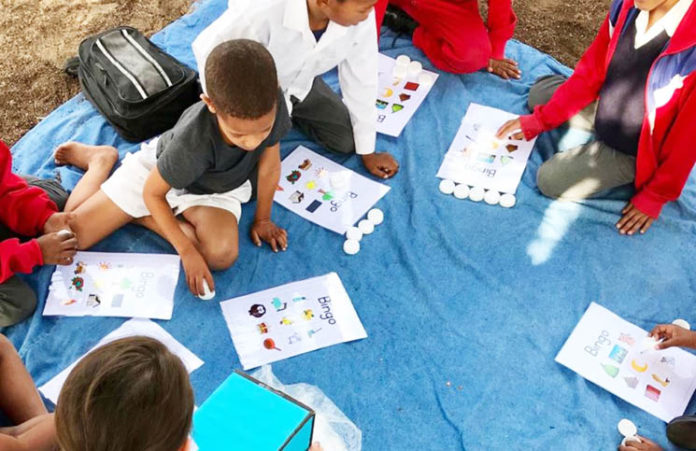
The “I CAN read” literacy project, the brainchild of Stellenbosch University’s Dr Zelda Barends, not only aims to improve the literacy levels of foundation-phase learners, but also alerts prospective teachers to how context can and should influence their approach to teaching. Over the past four years, the project has evolved into a significant social impact initiative, shaping many young learners and student teachers.
Barends, a lecturer in Curriculum Studies and the Foundation Phase programme coordinator in the Faculty of Education, designed the after-school language development programme focusing on foundation phase learners (Grades 1 to 3) as a way to help address South Africa’s huge primary-school literacy crisis.
Supplementing the existing curriculum, “I CAN read” currently comprises 77 pre-service teachers who offer language support to approximately 360 learners from three schools in the greater Stellenbosch area. Lessons consist of phonics and word-building to eventually elevate learners reading comprehension.
At the same time, the programme also offers student teachers a platform to become culturally responsive teachers. Students are expected to adapt their teaching methods according to the diverse contexts and needs in the classroom. Matie students training to become Afrikaans Home Language foundation phase teachers, teach the little ones twice a week for 11 weeks in the first semester of their fourth-year BEd studies. And the feedback is overwhelmingly positive.
Barends believes the project is slowly but surely helping to improve the children’s literacy levels. Feedback points to some improvement in participating learners’ schoolwork, especially their ability to write descriptive sentences. The children also appear to enjoy reading.

